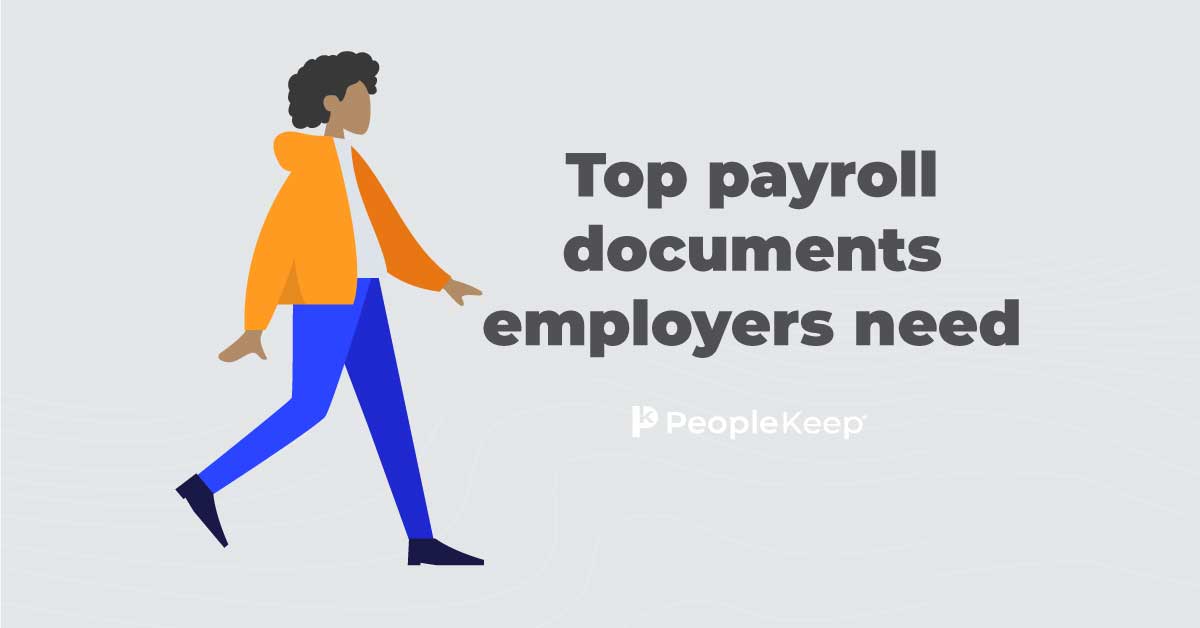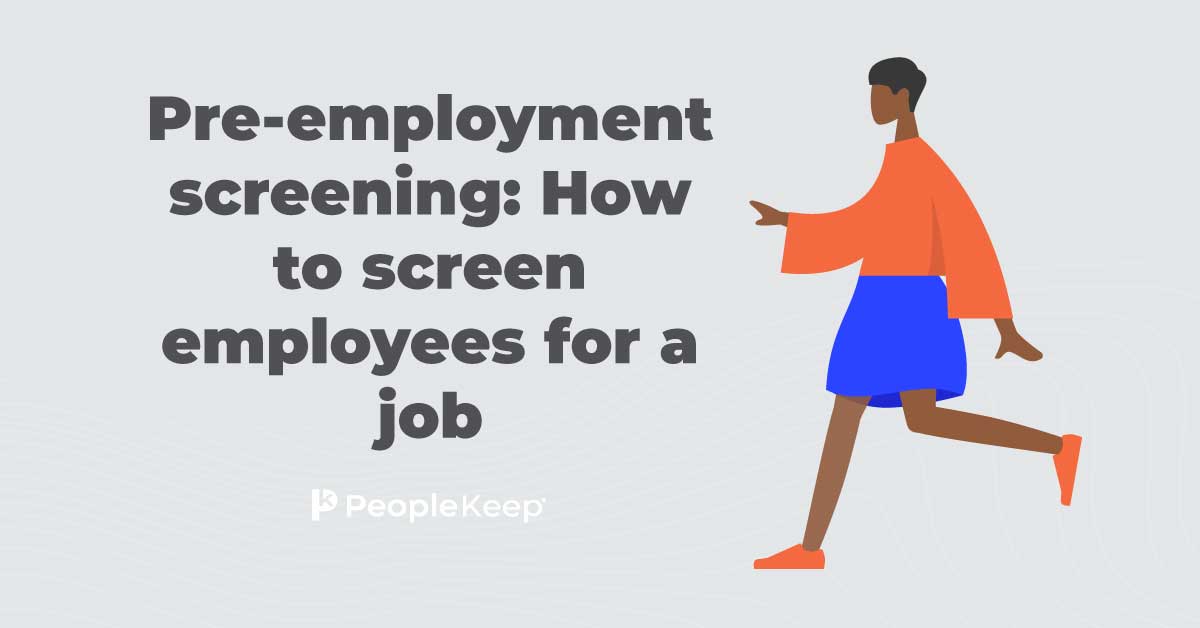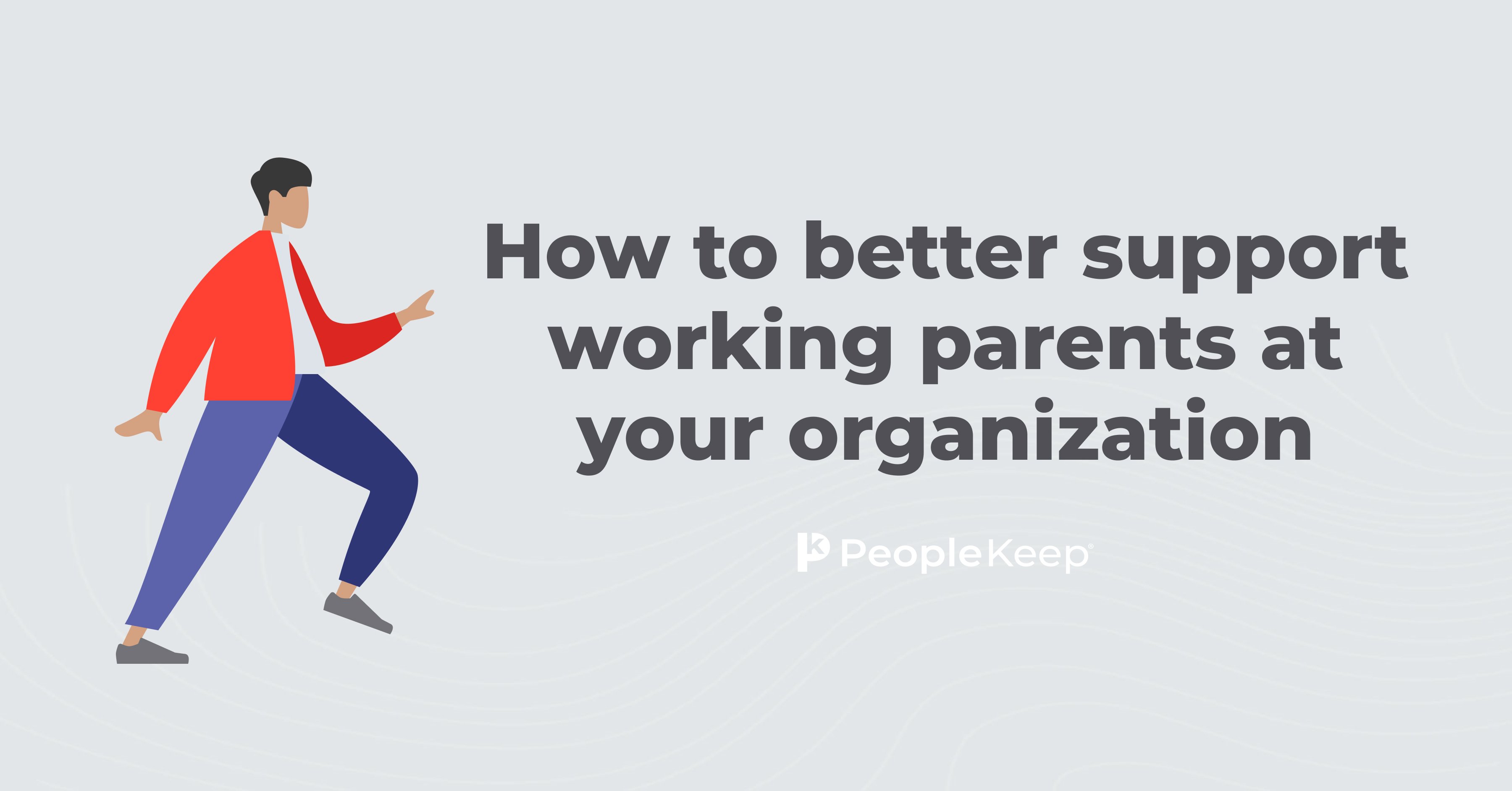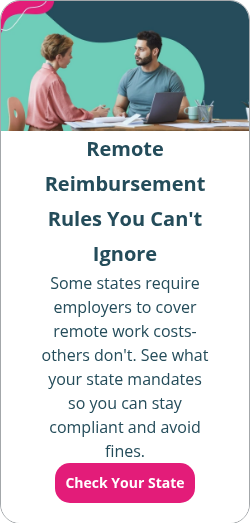How to conduct a great remote interview
By Chase Charaba on September 12, 2023 at 12:34 PM
Conducting remote interviews has become more common than ever before. They've gained popularity due to their convenience and flexibility.
Following the COVID-19 pandemic Indeed1 conducted a survey on hiring trends. Its 2021 Hiring Trends Report found that 82% of employers surveyed used virtual interviews, and 93% of employers planned to use them moving forward.
However, the remote interview process presents some unique challenges that you need to address to have an interview that's as effective as an in-person one, if not more.
In this article, we'll go over the pros and cons of remote interviewing and provide tips for conducting a great remote interview.
Advantages of remote interviewing
There are many advantages to conducting a remote job interview.
In a regular interview process, hiring managers often have to deal with cancellations and rescheduled appointments for a physical space, resulting in a slower hiring process. Candidates may also get lost on their way to your location, leading to a late start. Other times, candidates may have difficulty scheduling time for a physical interview, especially if they're currently employed.
With a remote interview process, you can conduct more interviews thanks to increased flexibility and availability of appointments. Candidates only have to account for the scheduled start time of an interview and don’t have to plan for travel time, making the process easier for both parties.
Remote interviews also make it easier for other company stakeholders to join without needing a larger physical space. If you get the candidate's permission, you can also record the interview so that others at your organization can review it on their schedules.
Perhaps the most significant advantage of remote interviews is the ability to hire remote employees from outside of your local area. Instead of limiting your talent pool to just those within a few miles of your office, you can hire qualified candidates for your remote teams no matter where they live.
Disadvantages of remote interviews
While there are many advantages to conducting a remote interview, there can also be some disadvantages.
In-person interviews often provide greater engagement, allowing hiring managers to read a candidate's body language or have candidates demonstrate particular skills that they can only showcase in person.
A significant disadvantage is that some candidates may not have a stable internet connection, webcam, or laptop for them to do an interview. Others may feel uncomfortable with the remote hiring process if they aren't familiar with it.
In these cases, an in-person interview would be a better option (provided they’re near your location).
Steps to great virtual interviews
Now that we've covered the pros and cons of remote interviews to help you determine if they're the right option for your organization, let's discuss how to make your virtual interviews successful. Here are eight essential remote interview tips.
1. Set realistic expectations
Video interviews can come with various challenges not seen with a traditional interview. One of the biggest hurdles is technology.
The potential candidates you're interviewing may be unfamiliar with your organization's video platform, such as Zoom, Skype, Google Meet, or Microsoft Teams. To ensure that candidates know where and how to download the software and join the remote video interview, you can send instructions along with the invite.
Even with these instructions, candidates may be a minute or two late as they try to navigate the new programs.
A technical glitch is also bound to happen during the hiring process. That's why testing your equipment before the interview starts is good practice. Ensure you can see yourself on screen, that your microphone and speakers work, and that your internet connection is stable. You can do this by running an internet speed test. Ask your interviewee to do the same.
While you and your candidates can fix most glitches with troubleshooting or rejoining the call, sometimes, you won't be able to proceed with the interview. This could happen if your internet connection goes down (or your candidate's), a laptop dies, or an outdated driver causes audio or video problems.
In this case, make sure you have the candidate's phone number to continue the conversation in a phone interview or reschedule for a better time.
By planning for these issues, you can handle them as they arise.
2. Dress as you would for an in-person interview
Even though it's a remote interview, you should dress as you would if interviewing someone in person. For most organizations, that means looking professional. However, you should convey your company culture, whatever that may be.
With a remote job interview, there's more to looks than just how you dress. You'll want to ensure your lighting is good so interviewees can see you, and you should position yourself so that you're centered on the screen.
Dressing appropriately for the interview, using proper lighting, and having a professional backdrop will help you look your best.
3. Have questions ready
With any interview, you'll want to review your candidate's resume and cover letter thoroughly to prepare the kinds of questions you'll ask in the interview. Create a list of pre-determined questions and print them out along with the resume to ensure you have them available for quick reference.
Start with an introduction and a few open-ended questions to help everyone warm up and get comfortable with the remote setting. Many interviewers ask, “Can you tell me about your background?” to help break the ice.
You'll want to ask a mix of questions that help you identify the candidate's strengths and weaknesses and how they'll fit into your company culture.
For remote or hybrid work positions, you should ask additional questions about communication, working independently, and what the job applicant looks for in their role.
For example, you might ask an interviewee about a time they had to communicate information to both in-person and remote team members to understand how they can navigate a hybrid workplace.
You should also prepare for any questions the candidates may have for you. Interviewees might ask about compensation if you didn't list a salary range or employee benefits in the job description.
4. Minimize any distractions
You need to minimize or eliminate distractions if you're working from home. Find a quiet space where you can avoid interruptions. A pair of noise-canceling headphones are good to have on hand as well. You'll also want to mute your mobile devices so nobody can disturb you.
Ensure your background looks clean and organized if you're interviewing remotely from home. If not, you can use one of the built-in presets in your video conferencing software for blurring your background or adding an overlay.
5. Be engaging and attentive
During the interview, you should maintain eye contact by looking at the camera instead of at your screen. This creates a more engaging and personal connection with the candidate. Actively listen to their responses and show genuine interest by nodding or providing verbal cues. You also want to give the candidate enough time to answer and avoid interrupting them.
6. Assess their skill sets and see if there's a good culture fit
Remote interviews provide an opportunity to assess a candidate's communication skills. Clear and effective communication is critical in remote work environments. Pay attention to their verbal and non-verbal cues, such as facial expressions, body posture, and tone of voice. Additionally, assess their cultural fit by observing how they adapt to the remote interview setting and their ability to work independently.
7. Have a backup plan
A critical part of conducting a great remote interview is having a backup plan. You never know when tech issues or emergencies will cut interviews short.
This could involve calling the candidate to complete the interview by phone or rescheduling for a different time or day. It's always best to postpone the interview than allow these issues to cut the conversation short, which can lead to increased stress and frustration.
8. Let the candidate know what happens next
Once you've completed the interview and asked for any final questions or thoughts, close the interview by letting the candidate know the next steps. Thank them for their time, and explain how the rest of your interview process will work. If you have more candidates to interview, let them know when you'll finish interviews (or first-round interviews) and when they should expect a follow-up email or phone call.
It's a good practice to let the candidate know whether they got the job or not when you've finished making your decision. That way, they can move on to the next opportunity if it isn't the right fit.
Conclusion
Remote video interviews can present unique challenges that don’t occur with other types of interviews. By setting realistic expectations, dressing appropriately, preparing interview questions, minimizing distractions, and letting the potential employee know about the next steps, you'll be on your way to conducting a successful interview.
One of the best ways to bring in more job seekers is to offer a competitive benefits package. If you're ready to attract and retain top talent, PeopleKeep can help. Our health reimbursement arrangement (HRA) administration software makes it easy to provide health benefits to your workforce no matter where they live.
This blog article was originally published on July 20, 2022. It was last updated on September 12, 2023.
Check out more resources
See these related articles

Top payroll documents employers need
To ensure smooth payroll processing and compliance, employers need to have the right documents. Discover the top payroll documents in this comprehensive guide.

Pre-employment screening: How to screen employees for a job
Discover the essential steps to conducting a pre-employment screening process. Learn how to screen job applicants and make informed hiring decisions.

How to better support working parents at your organization
There are many strategies you can use to reduce parents' stress at work. This blog will go over five ways you can support parents at your company.



